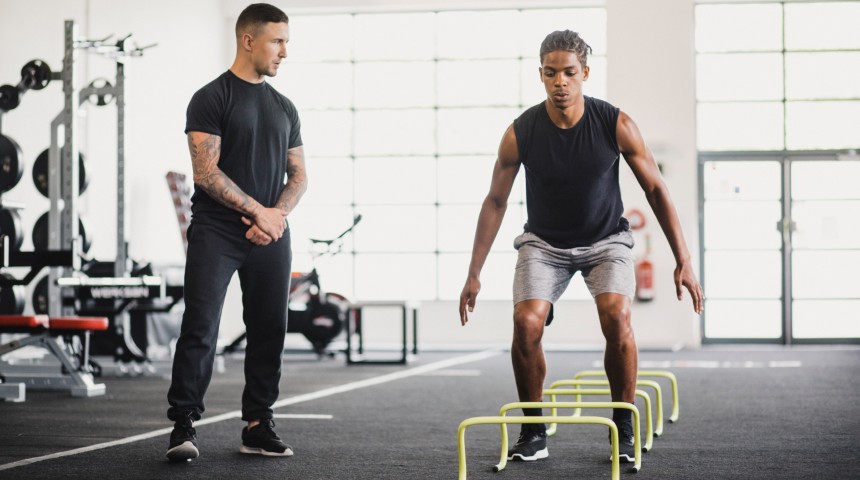
Are you interested in becoming an exercise scientist or clinical exercise physiologist?
Depending on where you want to work – be it local community groups, private practice or professional sporting teams – there are several study options available to help you kick your career goals.Knowing which courses are available, their differences and what careers they can lead to is important to ensure you choose what’s right for you.
What courses are available in sport and exercise science or clinical exercise physiology?
At Murdoch, there are four courses available across the undergraduate and postgraduate levels to help you become either an accredited exercise scientist (AES) or an accredited exercise physiologist (AEP). These are:
- Bachelor of Sport and Exercise Science
- Bachelor of Sport and Exercise Science / Master of Clinical Exercise Physiology
- Master of Exercise Science (Research)
What are the differences between exercise science courses?
The main differences between the four courses is the depth of study you’ll need to complete, how long it will take to complete the degree, the number of hours required for practical placements and if you’re able to register with an accrediting body once you’ve graduated. The main points of difference for each of the four courses are as follows:
Bachelor of Sport and Exercise Science
- 3 years of full-time study
- Accreditation as an AES available with Exercise and Sports Science Australia
Bachelor of Sport and Exercise Science / Master of Clinical Exercise Physiology
- 4-years of full-time study
- Accreditation as an AEP available with Exercise and Sports Science Australia
Master of Exercise Science (Research)
- 1-year full-time study
- A combination of coursework and internship at Murdoch’s Exercise Science Research program
So, which course is best for me?
Choosing which course to study really depends on what type of career you want to pursue as a sport and exercise scientist or clinical exercise physiologist.
So what can you do with an exercise science degree?
The Bachelor of Sport and Exercise Science is suited to students who want to work with local communities in fitness centres, gyms, sports clubs, or health groups. For example, you may want to become a strength and conditioning coach working with amateur athletes, such as cyclists, triathletes or cross fitters.
The Bachelor of Sport and Exercise Science + Clinical Exercise Physiology is an integrated degree in which you can graduate as an accredited exercise physiologist. It combines the Bachelor of Sport and Exercise Science course with the Graduate Diploma in Clinical Exercise Physiology. This is suited to people who want to work in private practice, either for yourself in your own business or for someone else.
The Graduate Diploma in Clinical Exercise Physiology is a 1-year postgraduate course. This is suited to students who have an existing bachelor’s degree in sport and exercise science or sufficient industry experience and want to upskill in order to become an accredited exercise physiologist to work in private practice.
Finally, the Master of Exercise Science (Research) is available to develop specialised knowledge in an area of personal interest and complete your own research project. This is suited to students who want to work with clinical, sport or general populations.
What are the entry requirements for exercise science?
The entry requirements for each course vary, so you’ll need to understand the prerequisites before applying, and it will also change depending on the highest level of education you’ve completed.
For recent high school students using their ATAR, you’ll need a minimum rank of 70 to study either the three-year Bachelor of Sport and Exercise Science or the four-year integrated degree. Alternatively, if you studied a VET course at school you’ll need to have completed a Certificate IV or higher. There are also admission pathways if you have completed vocational education and training as well as work and life experience.
For the Master of Exercise Science (Research), you will need a bachelor’s degree in Exercise Science to gain entry, and you’ll also have to meet Murdoch’s minimum English requirements.
For each of the four courses, it’s best to double check the individual entry requirements so you know what criteria you’ll need to meet.